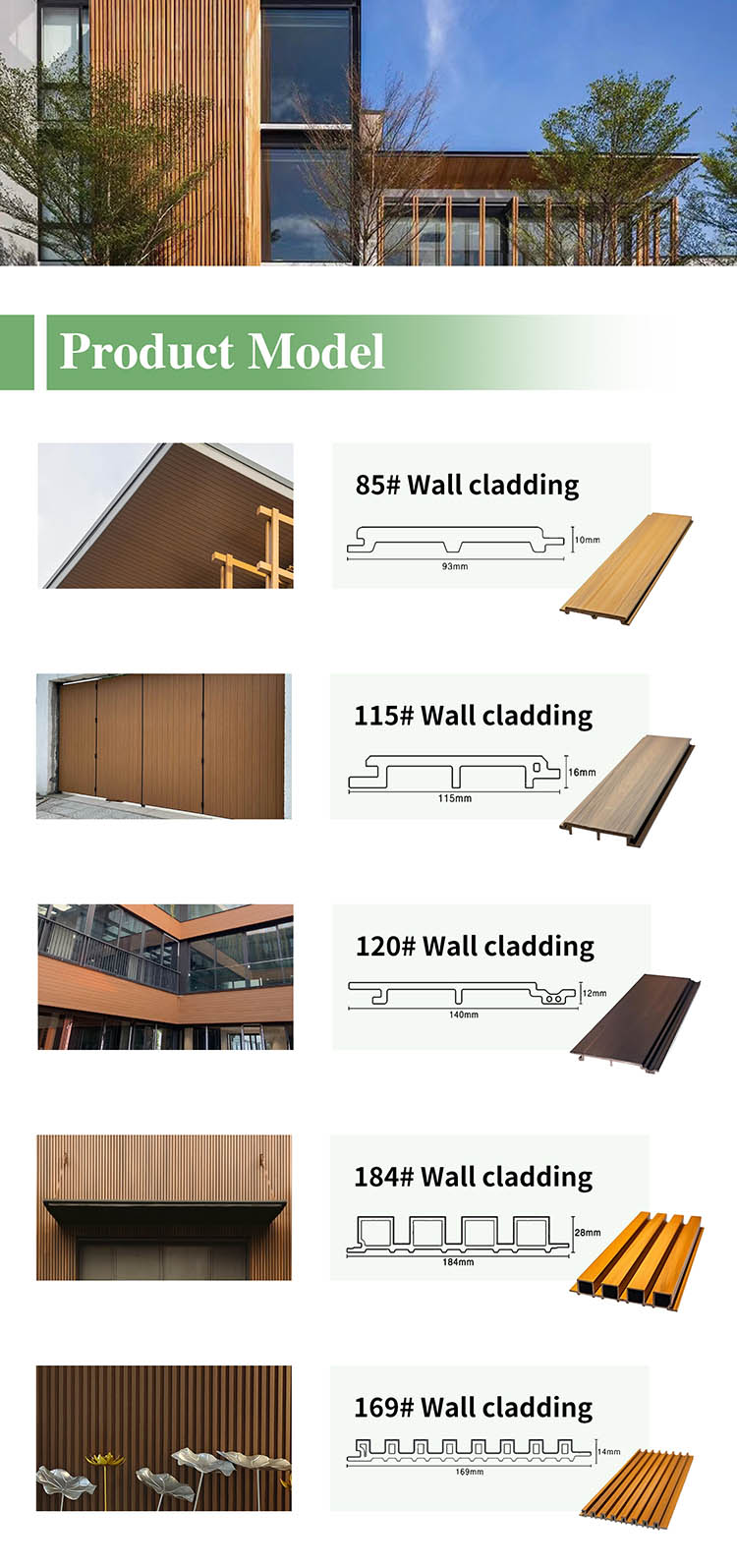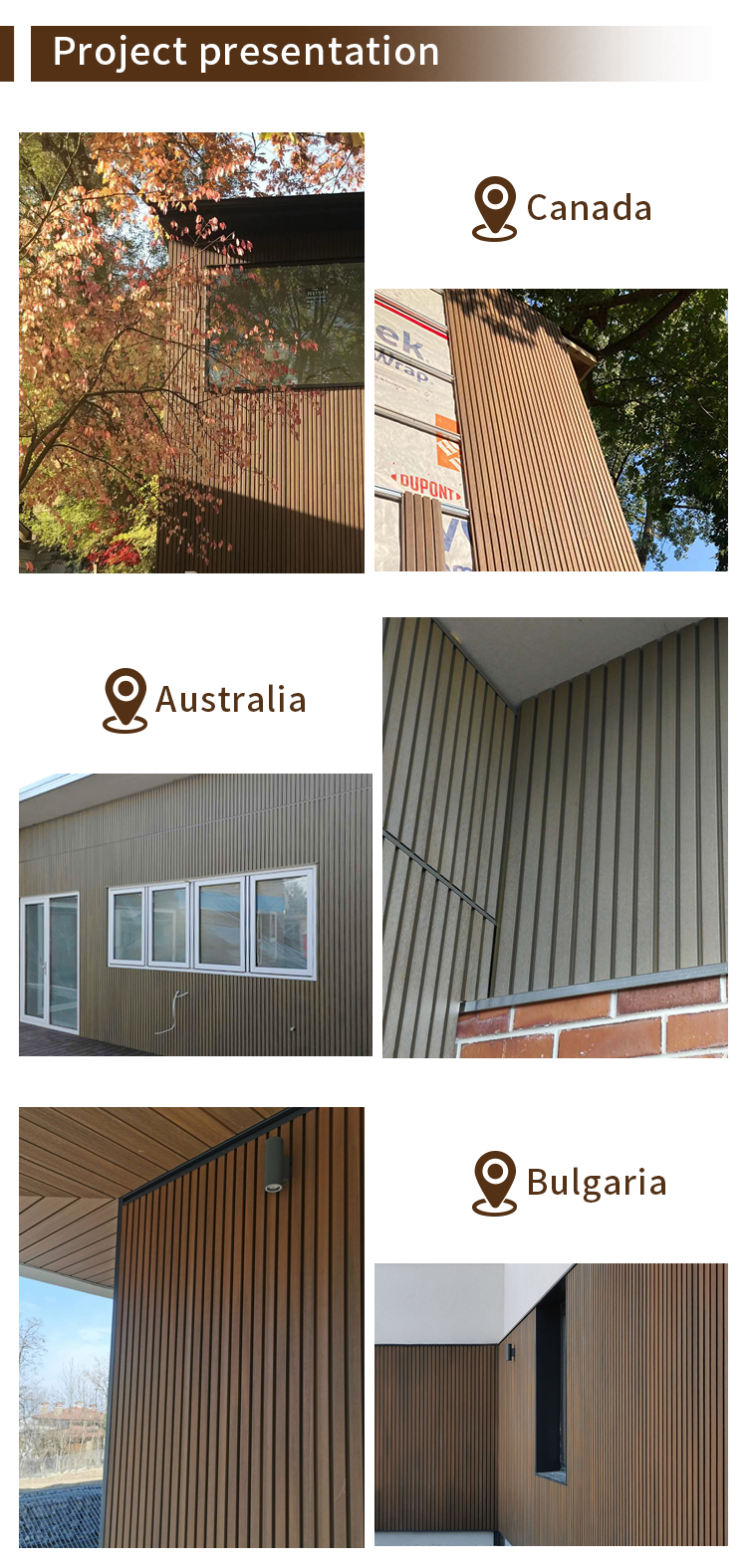SP-WP14
Mexytech
39189090
Weather-Resistant Properties of Composite Timber Cladding

Composite timber cladding has become increasingly popular in the construction and architectural industries due to its exceptional weather-resistant properties. This innovative material combines the natural beauty of wood with the durability of synthetic components, creating a versatile and resilient cladding option that can withstand a variety of harsh weather conditions.
One of the key benefits of MexyTech composite cladding panel is its ability to resist moisture and water damage. The manufacturing process involves encapsulating wood fibers within a protective polymer layer, which prevents the ingress of water and reduces the risk of rot and decay. This makes the cladding particularly suitable for regions with high rainfall or humid climates, where traditional timber would be more susceptible to damage.
Additionally, wood plastic composite cladding panel is designed to withstand temperature fluctuations and maintain its structural integrity in both hot and cold climates. The material does not warp, crack, or fade under UV exposure, ensuring that the building's exterior remains aesthetically pleasing and protected from the elements over time.
The non-conductive nature of the composite material also contributes to its weather-resistant capabilities. It is less likely to be affected by lightning strikes or electrical storms, providing an added layer of safety for buildings in areas prone to such weather events.
Maintenance requirements for composite timber cladding are minimal, further enhancing its appeal. The material can be easily cleaned with soap and water, and it does not require painting or staining to maintain its appearance or protect it from the weather. This not only saves time and effort but also reduces the environmental impact associated with the use of paints and treatments.
In conclusion, the weather-resistant properties of wpc timber cladding make it an ideal choice for a wide range of building projects. Its combination of natural aesthetics, durability, and low maintenance make it a sustainable and cost-effective solution for protecting structures from the elements while enhancing their visual appeal.








Please Click Here to Check WPC Projects.
Weather-Resistant Properties of Composite Timber Cladding

Composite timber cladding has become increasingly popular in the construction and architectural industries due to its exceptional weather-resistant properties. This innovative material combines the natural beauty of wood with the durability of synthetic components, creating a versatile and resilient cladding option that can withstand a variety of harsh weather conditions.
One of the key benefits of MexyTech composite cladding panel is its ability to resist moisture and water damage. The manufacturing process involves encapsulating wood fibers within a protective polymer layer, which prevents the ingress of water and reduces the risk of rot and decay. This makes the cladding particularly suitable for regions with high rainfall or humid climates, where traditional timber would be more susceptible to damage.
Additionally, wood plastic composite cladding panel is designed to withstand temperature fluctuations and maintain its structural integrity in both hot and cold climates. The material does not warp, crack, or fade under UV exposure, ensuring that the building's exterior remains aesthetically pleasing and protected from the elements over time.
The non-conductive nature of the composite material also contributes to its weather-resistant capabilities. It is less likely to be affected by lightning strikes or electrical storms, providing an added layer of safety for buildings in areas prone to such weather events.
Maintenance requirements for composite timber cladding are minimal, further enhancing its appeal. The material can be easily cleaned with soap and water, and it does not require painting or staining to maintain its appearance or protect it from the weather. This not only saves time and effort but also reduces the environmental impact associated with the use of paints and treatments.
In conclusion, the weather-resistant properties of wpc timber cladding make it an ideal choice for a wide range of building projects. Its combination of natural aesthetics, durability, and low maintenance make it a sustainable and cost-effective solution for protecting structures from the elements while enhancing their visual appeal.








Please Click Here to Check WPC Projects.
